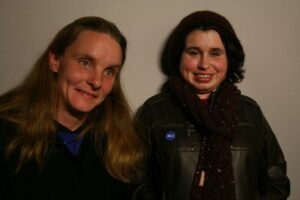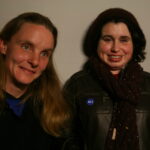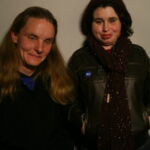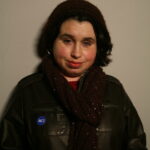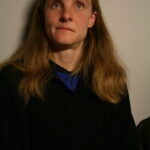Description
Amber DiPietra, 29, and Jessie Lorenz, 31, talk about their visual impairments, and how they navigate the world.Subject Log / Time Code
Amber, through her work at Lighthouse for the Blind, says she talks to a lot of people with layered eye issues such as glaucoma and cataracts and how she feels good that she can help them map out the help they can get.
Amber talks about how disabilities are viewed differently than before. that in the early years disability wasn’t a pride word and that the “disability community” and “independent living” was not big then.
Amber talks about how she went to a liberal arts college in Tampa and realized she could definitely live life on her own. She remembers her first trip to San Francisco and she new she would move there.
Jessie says she too felt there was a special place for her in San Francisco where “there’s a uniqueness in San Francisco where it is accepted that you push the envelope.”
Jessie talks about how it is a struggle for young people to come to terms with their own self-worth and disability and that to her being blind is just a characteristic, “like having brown hair.”
Participants
- Jessie Lorenz
- Amber DiPietra
Venue / Recording Kit
Tier
Partnership
Partnership Type
OutreachKeywords
- Americans with Disabilities Act
- Appearance
- Arthritis
- blind
- blindness, visual impairment, disability
- Childhood disease
- community worthies
- convalescent homes
- craft, skills, and procedures
- Disability
- Disability community
- Durango, Colorado
- grade school
- Great grandparents
- independent living
- Lighthouse for the Blind
- memories of growing up
- New College of Florida
- Prejudice
- rheumatoid
- San Francisco
- school day memories
- social beliefs and practices
- Tampa, Florida
- Video
- visually impaired
- Writer
